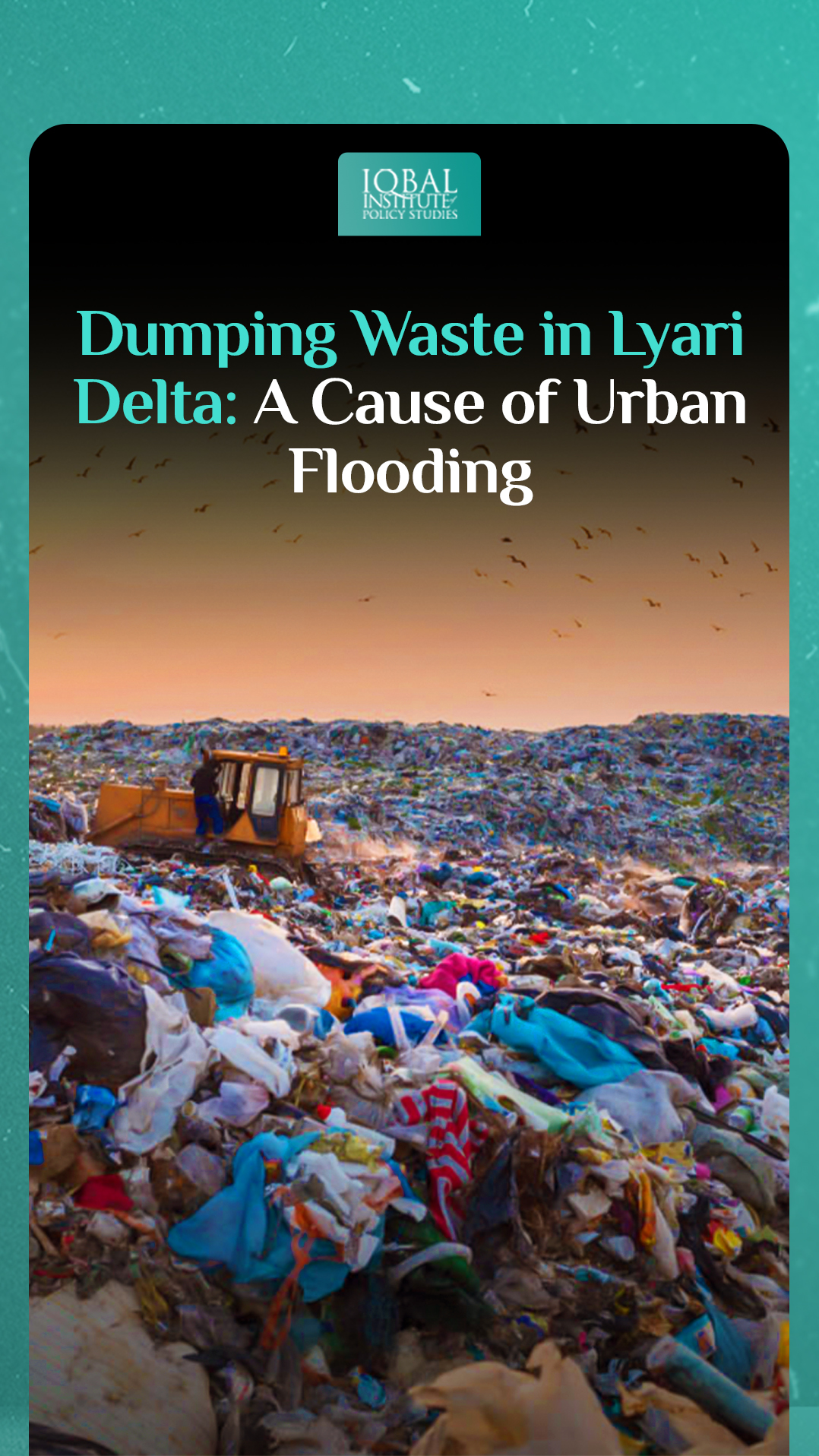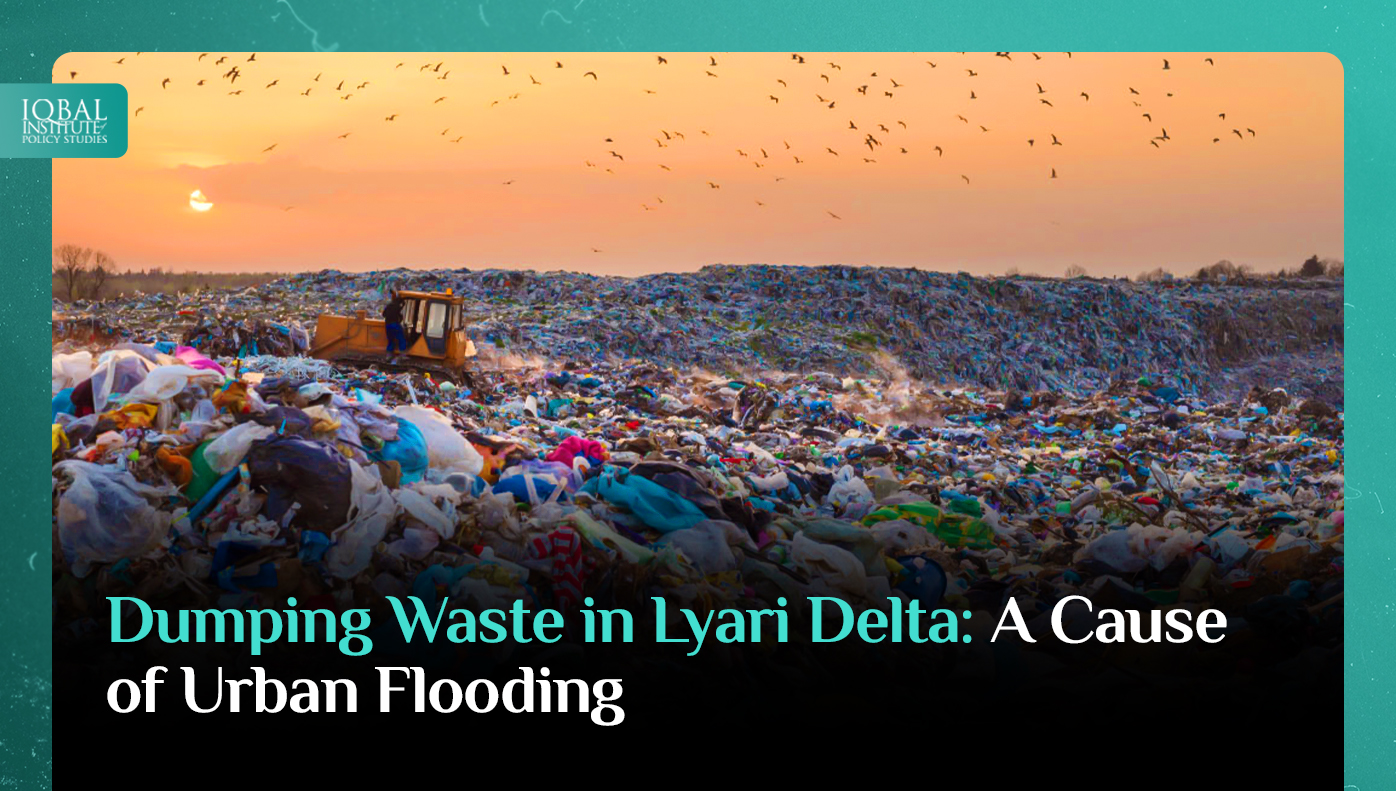Lyari is one of the two rivers that flow through Pakistan’s most populous city, Karachi. The river runs 50 kilometres long, through the District Central, East, and South of the city. Once the river was considered a potable water channel for the city, but now it discharges around 100 Million Gallons per Day (MGD) of toxic wastewater into the Arabian Sea, mainly due to the dumping of industrial waste.
The Lyari River delta naturally meant to be a spillway to control the flow of floodwater, is now choked by accumulated debris. Around 9,000 tons of waste are thrown into the Lyari River every month by industries, municipal organisations, and common people which has been accumulated on the riverbed and in the Lyari harbour area, preventing rain and floodwater from flowing into the sea uninterrupted.
Around 60% of the country’s solid waste is collected and dumped into the river. The remainder is left uncollected which ultimately causes problems of urban flooding, blockage in the sewerage system, and the outbreak of numerous diseases. All major cities face enormous challenges in how to manage urban waste. Bureaucratic hurdles, lack of urban planning, inadequate waste management equipment, and low public awareness contribute to the problem.
According to the World Trade Organisation, Pakistan generates approximately 49.6 million tons of solid waste a year, which has been increasing by more than 2.4 per cent annually. Pakistan lacks waste management infrastructure, creating serious environmental problems. Most municipal waste is either burned or dumped in water sites on vacant plots threatening the health and welfare of the dwellers of that area.
According to a report on environmental issues of the Lyari river, the accumulation of dumping waste has left no space for the flow of flood water causing urban flooding in the city. To detoxify the city’s essential river, the government must launch a clean-up drive to address the adverse impacts of poor waste management. In this case, both the public and private sectors must come together to initiate small- to large-scale projects, small- to large-scale waste collection, and waste treatment projects to save the sea from pollution caused by industrial, municipal, and biological waste. Nonetheless, the government should implement a solid waste management policy on an urgent basis.



Leave a Reply